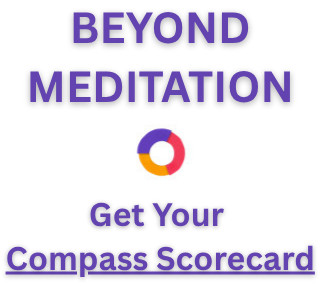
How Meditation Supports Adults with ADHD
For many adults with ADHD, maintaining focus, managing emotions, and feeling calm can be daily challenges. Meditation is a simple yet powerful practice that can help train the mind to slow down, focus, and respond more intentionally to the world around you.
ADHD and the Adrenaline Loop
People with ADHD often have a natural pull toward stimulation. For some, that looks like adventure sports or high-energy hobbies. For others, it shows up as a constant chase for stress, pressure, or even drama — the kinds that quietly wear the body down over time.
That’s why meditation can be such a powerful counterbalance.
Many people with ADHD develop coping habits that work in the short term but backfire later. One of the most common? Running on adrenaline. It often starts innocently enough: we notice that excitement helps us focus, so without realizing it, we start engineering chaos — tight deadlines, last-minute rushes, emotional ups and downs — just to feel switched on. It becomes a cycle of pressure, performance, and self-criticism, all because the rush feels like focus.
Why Slowing Down Matters
When adrenaline becomes our main source of motivation, we pay a steep price. That temporary hit of clarity and drive taxes the body — raising blood pressure, heart rate, and blood sugar while suppressing the immune system. It’s like taking out a high-interest loan for concentration: you get the boost now, but your system pays for it later.
The truth is, both kids and adults with ADHD can learn to access calm, clarity, and stillness. That peaceful state isn’t out of reach — it’s a natural capacity that meditation helps unlock. We know how good it feels to stay there more often. This is your guide to finding that same sense of ease and focus — without needing the adrenaline to get there.
The Benefits of Meditation for ADHD
1. Enhanced Focus
Meditation helps strengthen your brain’s ability to notice distractions and bring your attention back to what matters. Over time, this can improve concentration and task completion.
2. Reduced Restlessness
Practicing stillness encourages calm within the body and mind, helping to quiet the urge to move or fidget constantly.
3. Improved Emotional Regulation
Meditation increases awareness of emotional states as they arise, allowing you to recognize triggers and manage strong feelings with greater ease.
4. Better Impulse Control
By creating space between an urge and a reaction, meditation supports more thoughtful, deliberate decision-making.
5. Greater Calm and Mood Balance
Regular practice can reduce stress and anxiety, lift mood, and build resilience—offering a more stable emotional foundation for daily life.
6. A Gentle Reminder
Meditation isn’t about perfection—it’s about practice. Progress happens through consistency, not intensity. Even brief moments of mindfulness throughout your day can support focus, calm, and clarity.
7. Get Meditation Coaching Support
BEYOND MEDITATION




